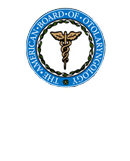How a Deviated Septum Can Impact Your Sinus and Respiratory Health
A deviated septum is a condition in which the nasal septum, the cartilage and bone that divides the nasal cavity, is off-center or crooked. This common condition can significantly impact sinus and respiratory health, leading to various uncomfortable symptoms and complications. Understanding how a deviated septum affects your health can help you seek appropriate treatment and improve your quality of life.
Understanding the Deviated Septum
The nasal septum ideally divides the nose into two equal halves. However, in many individuals, the septum is slightly off-center. A deviated septum occurs when this misalignment is pronounced, leading to obstruction of one or both nasal passages. This can be a congenital condition or result from nasal injuries or trauma.
Impact on Sinus and Respiratory Health
Individuals with a deviated septum may experience a wide range of issues that compromise their health. The following are some of the sinus and breathing problems that are related to a deviated septum.
Sinus Infections
A deviated septum can block the normal drainage pathways of the sinuses, causing mucus to build up. This stagnation creates an environment where bacteria and viruses can thrive, leading to frequent and chronic sinus infections (sinusitis). Symptoms include:
- Nasal congestion and difficulty breathing
- Facial pain and pressure
- Post-nasal drip
- Headaches
Reduced Airflow
The obstruction caused by a deviated septum can significantly reduce airflow through one or both nostrils. This makes it difficult to breathe through the nose, forcing individuals to breathe through their mouth, which can lead to dry mouth and throat irritation. Reduced nasal airflow can also impact the sense of smell and taste.
Nasal Congestion and Blockage
A deviated septum often causes persistent nasal congestion, which can be exacerbated by colds, allergies, or sinus infections. Chronic blockages can make it difficult to clear mucus from the nasal passages, leading to further discomfort and potential complications.
Sleep Disorders
A deviated septum can contribute to sleep disorders such as obstructive sleep apnea (OSA). OSA occurs when the airway becomes blocked during sleep, leading to repeated interruptions in breathing. Symptoms of sleep apnea include loud snoring, gasping for air during sleep, and daytime fatigue. Poor sleep quality can have far-reaching effects on overall health, including increased risk of hypertension, heart disease, and stroke.
Mouth Breathing
Chronic mouth breathing, often a consequence of a deviated septum, can cause a range of respiratory issues. Mouth breathing bypasses the natural filtering and humidifying functions of the nasal passages, leading to dry, irritated airways and increased susceptibility to respiratory infections. It can also contribute to bad breath, dental problems, and gum disease.
Difficulty Exercising
Physical activity can become challenging for those with a deviated septum due to reduced nasal airflow. This can make getting enough oxygen during exercise difficult, leading to fatigue and decreased performance. In severe cases, individuals may avoid physical activity altogether, impacting their overall fitness and health.
Seeking Treatment for a Deviated Septum
If you suspect that a deviated septum is affecting your sinus and respiratory health, it’s essential to seek medical advice. Treatment options range from conservative measures to surgical intervention:
- Medications: Decongestants, antihistamines, and nasal corticosteroids can help manage symptoms.
- Nasal Strips: These can help open nasal passages for improved airflow.
- Surgery: Septoplasty is a surgical procedure to straighten the nasal septum, improving airflow and reducing associated symptoms.
A deviated septum can significantly impact your sinus and respiratory health, leading to chronic sinus infections, sleep disorders, and difficulty breathing. Understanding the effects of this condition and seeking appropriate treatment can help alleviate symptoms and enhance your overall well-being. Don’t let a deviated septum compromise your health—seek expert care and breathe easier with effective treatment options.
At New York Sinusitis Treatment, we specialize in diagnosing and treating conditions like deviated septum to help you breathe easier and improve your quality of life. If you are experiencing symptoms related to a deviated septum, contact us today to schedule a consultation.













